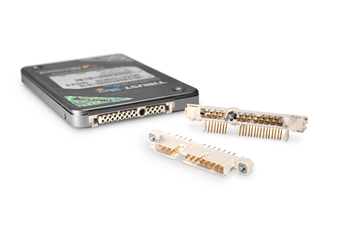A globalised business model leads to diversification
Gabriel Guglielmi, Head of Marketing at Smith Connectors, talks to Electronic Specifier Editor Joe Bush about how the company has restructured over the last few years and the key markets now served by its connector solutions.
In the last few years Smith Connectors has gone through a major restructure in order to support its customers on a global level. Previously around seven companies existed under the Smiths Connectors brand, each in charge of its own technologies and were all regional and independent. Although this business model had served the brand well for some time, with the increase in globalisation combined with and an increase in product complexity, it became more difficult for the company to support its customers on a global level.
Guglielmi commented: “It was very difficult for us to combine technologies and our previous model imposed limitations. We decided to make a change and create a global organisation, so we dismantled each of the individual companies and created global functions with regional sales organisations, to transform the company so that it now operates on a 21 century business model.”
This represented a major change for Smiths Connectors - some of the companies had been around for many years, so individuals were used to working within their own specific environment where it was far easier to offer local support – whereas a global model required a more remote approach to customer support. “It’s taken us a couple of years to make it work but it was very necessary,” Guglielmi added.
Diversification
On inspection of the market around two years ago, the company expressed concerns over the funding in the defence sector, so Smiths Connectors took the decision to focus on other markets. Guglielmi continued: “While defence is our base, we don’t believe we can achieve double digit growth in defence anymore as there are fewer programmes but the same number of players in the market, so the slice of the pie available is smaller. We looked at markets where there was the potential to double or triple our revenue in three to five years.
“We came to the conclusion that the medical and commercial aviation market would fit into this scenario. Commercial aviation began moving towards a telecom type of connector and they are experiencing a number of failures due to corrosion issues caused by vibration and friction - thus increasing the frequency of maintenance - as such they are coming to us for help and a more rugged connector.” As there have been efforts to limit the volume of traffic and emissions in our cities, so Smiths has also seen growth in rail and public transportation.

The oil and gas market is also key for the company. In such applications drill bits have to operate in very high temperatures and pressures. However, Smiths are able to supply connectors that can double the lifetime of the drilling tool, ensuring fewer tool breakages – in offshore drilling, a broken tool will cost $1m per day in down-time.
In subsea oil and gas the traditional practice has been to extract oil or gas and treat everything on the surface of the rigs. This obviously raises issues of risk and pollution. The standard practice now is to place the equipment on the sea floor, where substances can be separated at the source, thus doing less damage to the sea floor and effectively only bringing the oil or the gas to the surface without any other potential pollutants. However, whereas before broken equipment could be repaired on the surface, now connectors have to effectively be fit-and-forget solutions and must last up to 20 years on the sea floor.
Guglielmi added: “We have a history of selling into the space market - which means sending connectors over a long distance and never getting them back (we’re on the Rosetta space probe for example). So, what’s happening in the oil and gas market is the same as what’s happening in the space market. Obviously the connectors are not being sent as far, but they’re still going into a remote environment where they’re not coming back - increasing the need for connector reliability. That’s why most of the people in the oil and gas market know us from the space sector and in fact, a lot of the engineers in the oil and gas industry come from the space sector, due to this concept around reliability and fit-and-forget solutions.”
Medical
The medical sector is also a key industry for Smiths, with connectors being supplied for operations during surgery and other critical procedures. Guglielmi concluded: “Medical procedures are becoming more and more sophisticated so if a component like a connector fails then it can obviously be a matter of life and death. So, we’re adding more and more precision to our connectors. We are also doing a lot of work on ‘voice of the customer’, to find out what the problems are – not just the people building the equipment but also the people using it. What we discovered is, talking to nurses and the hospitals, the connector creates a big headache because they get broken. This can lead to hospital personnel trying to fix the connector (if it’s not completely broken), or just to make-do. This results in poor signals and further problems.
“The reality is that nurses are unfriendly to connectors - they are in a hurry and it’s not uncommon for connectors to get ripped out or forced in quickly. So, that’s what my marketing team and myself are trying to understand and how we can make things easier. In this market we’re trying to make our connectors as easy to use as charging an iPhone.”










